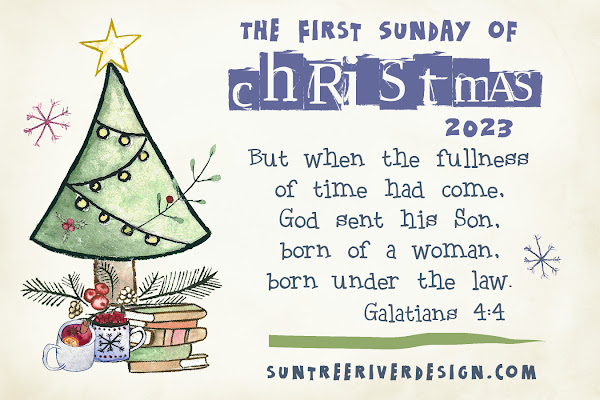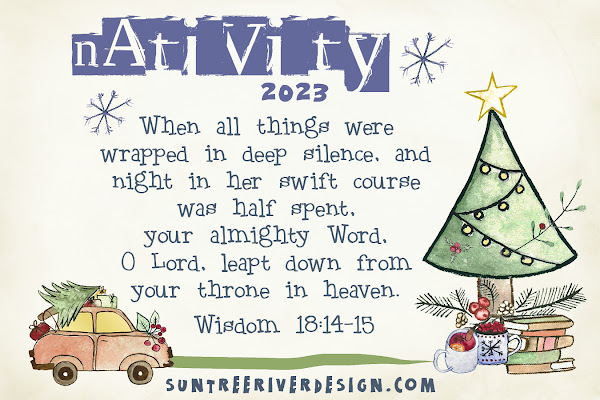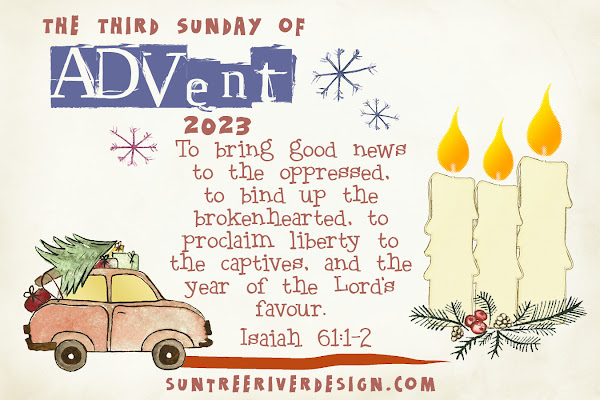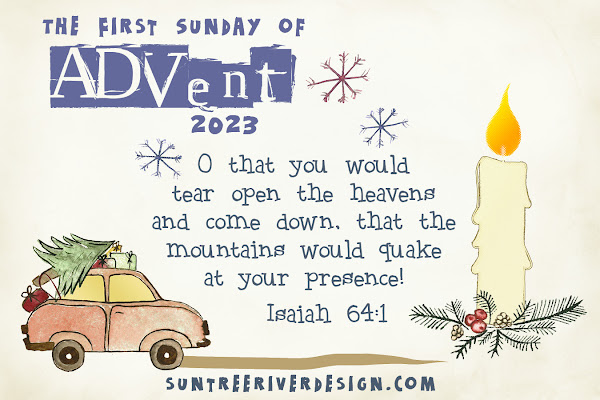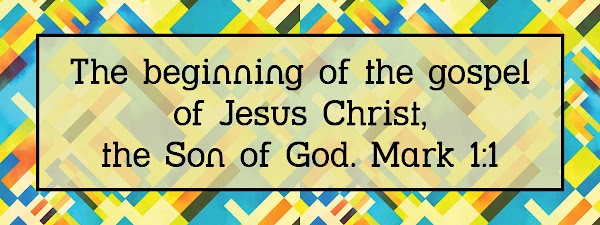by Alena Bugrova with legal reuse rights
The First Sunday of Christmas 2023
But when the fullness
of time had come,
God sent his Son,
born of a woman,
born under the law.
Galatians 4:4
Luke 2:22-23, 25-32, 39-40
22 When the time came for their purification according to the law of Moses, they brought Jesus up to Jerusalem to present him to the Lord: 23 as it is written in the law of the Lord, "Every firstborn male shall be designated as holy to the Lord",
25 Now there was a man in Jerusalem whose name was Simeon; this man was righteous and devout, looking forward to the consolation of Israel, and the Holy Spirit rested on him. 26 It had been revealed to him by the Holy Spirit that he would not see death before he had seen the Lord's Messiah.
27 Guided by the Spirit, Simeon came into the temple; and when the parents brought in the child Jesus, to do for him what was customary under the law, 28 Simeon took him in his arms and praised God, saying,
29 "Lord, now you are dismissing your servant in peace, according to your word;
30 for my eyes have seen your salvation,
31 which you have prepared in the presence of all peoples,
32 a light for revelation to the Gentiles and for glory to your people Israel."
39 When they had finished everything required by the law of the Lord, they returned to Galilee, to their own town of Nazareth.
40 The child grew and became strong, filled with wisdom; and the favor of God was upon him.
Purification and Presentation
Although February 2nd is the formal date for Mary's ritual purification and Jesus' presentation and consecration, for this seventh day of Christmas, the lectionary condenses time to forty days after Jesus' birth.
Today's gospel reading brings us a very Jewish Jesus with his parents fulfilling the requirements of ceremonial religious law that Luke refers to as "Law of Moses." In this passage, law doesn't specifically refer to the Sinai Covenant of the Ten Words or Commandments.
Paul's Birth Narrative
"But when the fullness of the time had come, God sent forth his Son, born of a woman, born under the law, to redeem those who were under the law, that we might receive adoption as children of God… then also an heir." Galatians 4:4-7
The Apostle Paul emphasizes death and resurrection so much that for him, the good news of the gospel is death and resurrection. In his only account of Jesus' birth, Paul refers to Jesus being born under the law's power, its boundaries, and the law's redemptive promise. Jesus' birth leads to our becoming God's offspring, as Paul proclaims elsewhere. Especially in Romans 8:12-17, he also mentions our unearned inheritance and glorification in Christ.
Paul and Luke both know a Jesus who from the start claims his place in the story of God's people Israel. Luke 2:21 tells us Jesus had been circumcised at eight days of age (the church observes the Feast of the Name of Jesus on January 1st, when this Galatians passage is the second lection), and to further meet the demands of ritual ceremonial law, Joseph and Mary dedicated Jesus back to God during the same temple visit as Mary's purification.
Luke 2:39 says Jesus' parents "finished everything the law required" before returning home to Nazareth.
Canticles
Luke's gospel uniquely includes three canticles or New Testament psalms; each has a place in the Liturgy of the Hours. Canticle comes from Latin for song or sing.
• Luke 1:46-55 Magnificat – "My soul magnifies the Lord; he has put down the mighty from their thrones and lifted up the lowly…" at Evening Prayer or Vespers that's typically sung at nightfall.
This is Jesus' mother Mary's song in response to angel Gabriel's announcement she will become the mother of Jesus.
• Luke 1:67-79 Benedictus – "Blessed be the Lord God of Israel; he has visited his people" at Morning Prayer, an office that generally combines elements of Lauds and Matins.
John the Baptist's father Zechariah's sings in response to news of his son's upcoming birth. This is John the Baptist's father and not Zechariah from the book of the twelve or minor prophets.
• Luke 2:29-32 Nunc Dimittis – "Lord, now let thy servant depart in peace; mine eyes have seen they salvation, which thou hast prepared…" this is the canticle for Compline or Night Prayer.
Temple priest Simeon sings because he recognizes Jesus as savior of the world.
God With Us
During Advent we waited and prepared for Jesus' birth as God with us – Emmanuel – the name the angel told Joseph to name the baby. Simeon had waited in the temple a very long time because God had promised Simeon he would experience God's Anointed One, the Messiah.
Martin Luther at his Wittenberg Reform and John Calvin at his Geneva Reform both included the Nunc Dimittis toward the end of their Holy Communion liturgies. Like Simeon, after we receive the Bread of Life and the Cup of Salvation we are ready for anything because we know the fullness of God's promised salvation. We know it because we've seen it, tasted it, touched it, smelled it, heard it…
